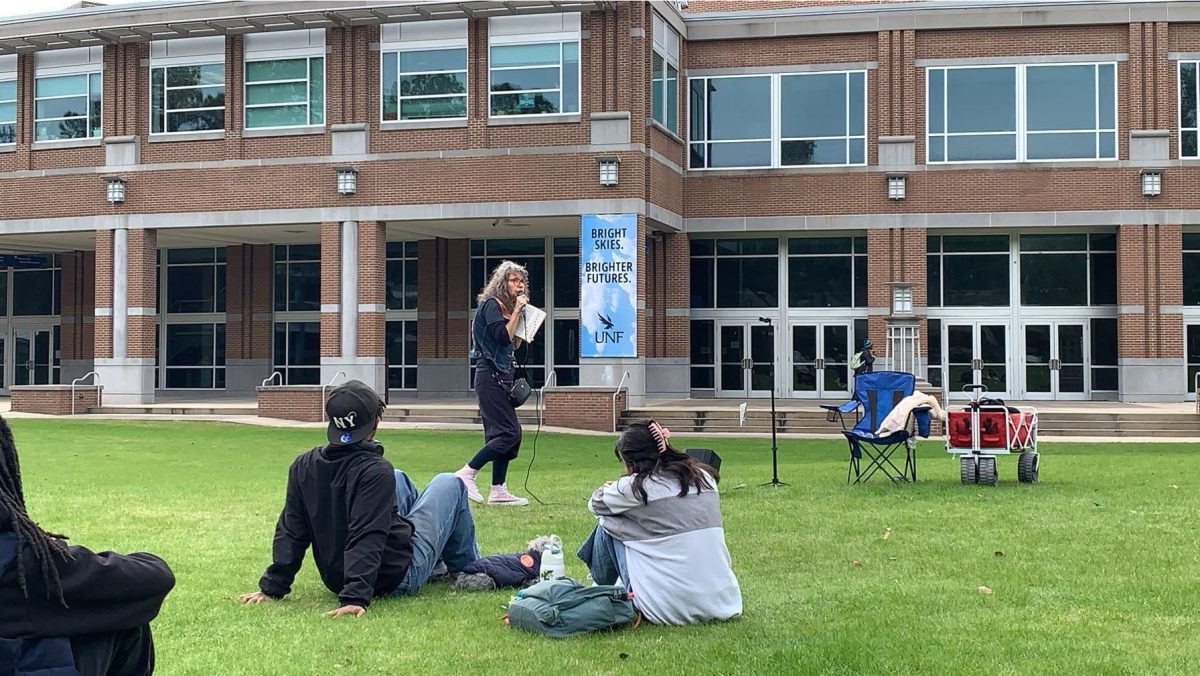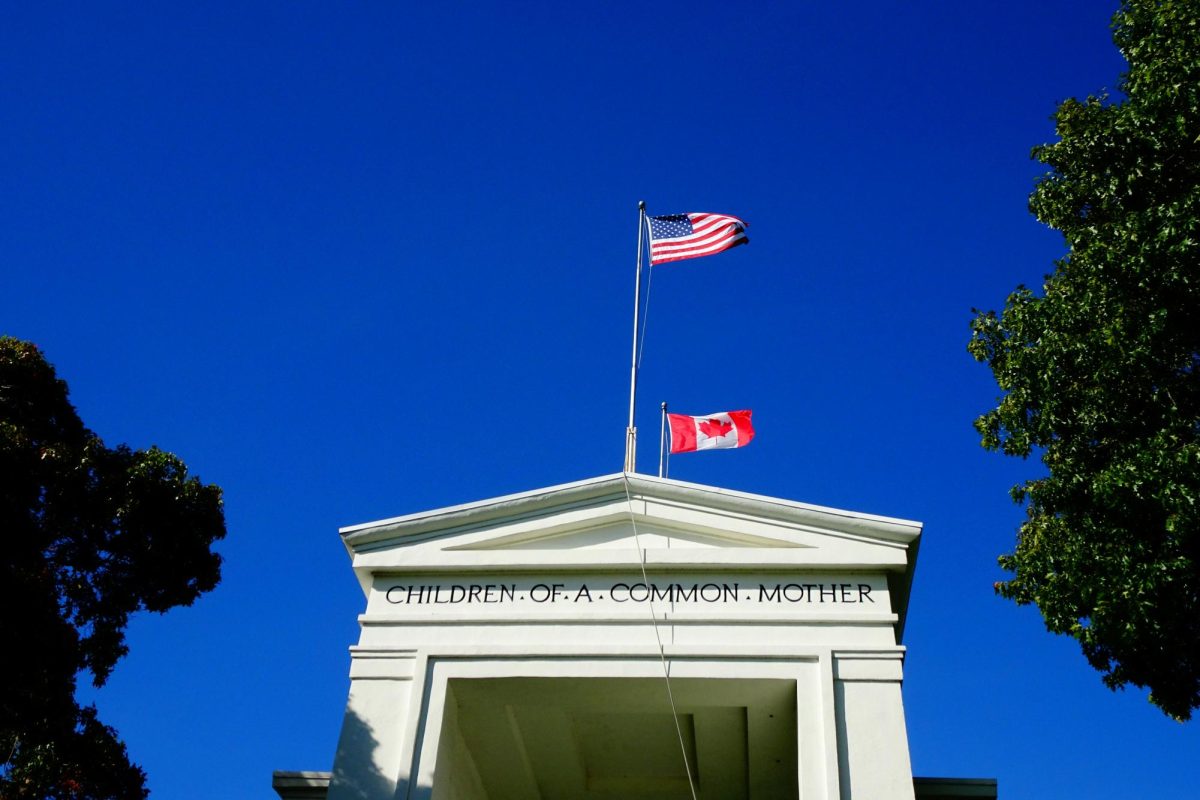This article expresses the views of its author(s), separate from those of this publication. Readers are encouraged to comment or submit a Letter to the Editor to share their opinions. To submit a Letter to the Editor, follow the instructions here.
Cindy Smock, better known as Sister Cindy, visited UNF as part of her spring 2025 college tour on Jan. 14 and 15.
A social media sensation with 36,500 followers on Instagram and 413,000 followers on TikTok, Sister Cindy is known for her controversial language, having blown up online for yelling about margaritas and the things they’ll make a girl do.
That particular speech has been remixed into the song “One Margarita (Margarita Song)” by That Chick Angel. At the time of publication, the song has over 22 million streams on Spotify.
So, of course, when she stopped at UNF, people had to talk about it and see her speak.
I think plenty has been said about Sister Cindy’s campus visits and the ethics of viewing one of her sermons.
I could waste energy explaining how people should not give her the attention she wants, but I think it is more fruitful to ask, with all the changes currently happening in the social media landscape, are we in for more Sister Cindys?
Recently, the tech oligarchs, to paraphrase former President Joe Biden, have begun to fall in line with the Trump administration’s thinking about online speech.
Elon Musk, a self-proclaimed “free speech absolutist,” is an obvious case of CEOs advancing Trump’s agenda. The X owner played a crucial role in Trump’s return to power and is set to be a key figure in the Trump administration.
Musk’s championing of free speech comes into question when you consider his lawsuits against those who do not want to advertise on his app, or the fact that “X has suspended over four times as many accounts in the first half of 2024 — 5.3 million — as Twitter ever did during similar periods.”
Outside of Musk, other tech CEOs seem to want to stay in the new Trump administration’s good graces.
When TikTok came back online following their brief service outage, the app showed users a statement thanking President Trump for taking “a strong stand for the First Amendment and against arbitrary censorship.”
At the start of the new year, Mark Zuckerberg debuted a new, more masculine public persona alongside Meta’s new content moderation rules.
With these new rules, Meta is going away with fact-checking and limiting content moderation. One update is that users can make posts calling those in the LGBTQ+ community abnormal and mentally ill.
On the surface, I think one can look at the more conservative swing that social media platforms seem to be taking and assume that obviously social media users are going to see a rise in content similar to Sister Cindy’s.
However, as I was writing this article, I began to wonder if these social media policy changes are actual changes, or if they are making implicit rules explicit.
With how much media attention Mark Zuckerberg received with his gold chain swagger on the Joe Rogan Experience, I get how easy it is to panic.
I’ve seen social media users angrily complain about being forced to follow the new president, and AOC raises the alarm that all social media platforms are right-wing now.
I think that there is cause for anxiety as the algorithms these platforms use shape what you see on your screen, and thus, determine who gets heard in the modern marketplace of ideas.
In times of panic, like the scramble caused by Zuckerberg’s outrightness, we tend to forget what social media algorithms have consistently been like.
Looking at the Trump campaign’s embrace of influencers, many of whom attended Trump’s inauguration— Theo Von, Jake Paul, etc.— one can see that clearly, social media and right-wing rhetoric have been going hand-in-hand for a while, but social media algorithms have had a conservative slant for longer than that.
In 2020, an analysis done by The Economist found that right-leaning news outlets Fox News and Breitbart were the most popular ones on Facebook.
Media Matters, a left-leaning watchdog organization, performed a three-year study where they found that right-wing political content got the most engagement on Facebook.
While social media users laughed at Sister Cindy and in turn, shared her ideas, something more complex was going on.
So, are we going to have more Sister Cindys?
I cannot predict the future, but I can tell you that she did not come out of nowhere, but maybe going forward, social media users will pay more attention when people like her go viral.
___
For more information or news tips, or if you see an error in this story or have any compliments or concerns, contact editor@unfspinnaker.com.

















